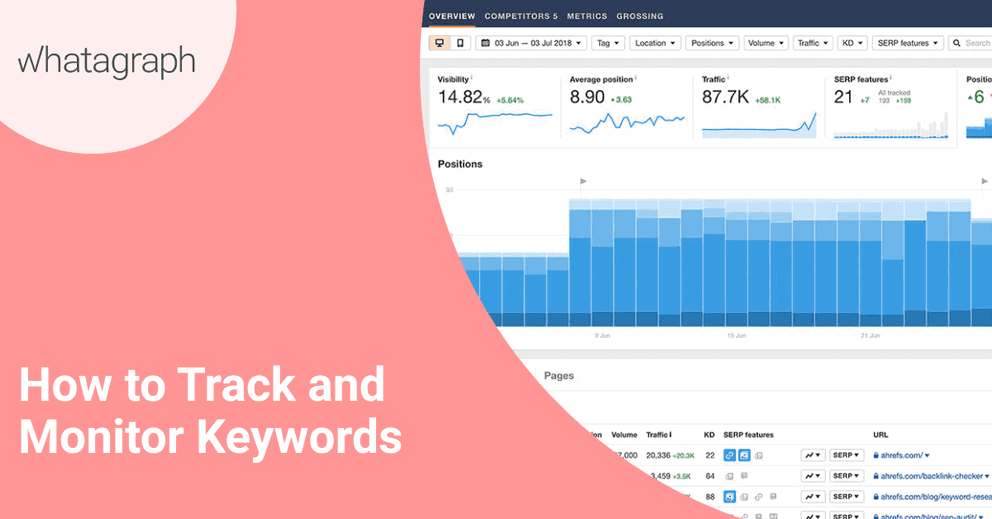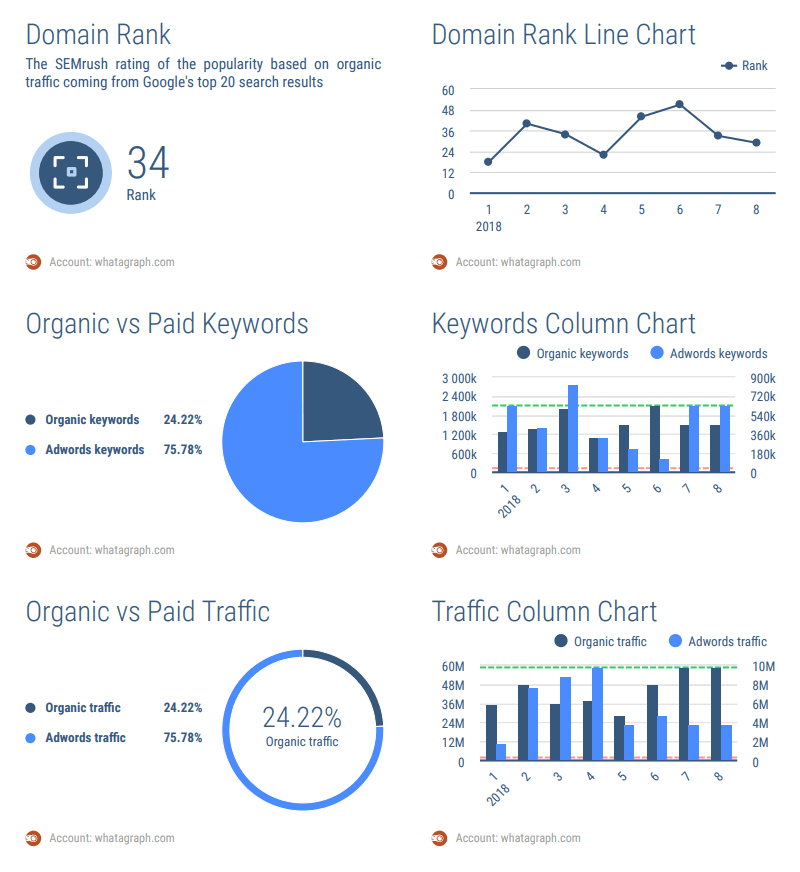What Is Keyword Monitoring and How to Track Keywords
Keywords are a significant component of Search engine optimization. People use phrases or keywords when they search on Google, and these keywords strings can establish a bond between netizens and a well-optimized website.

Mar 29 2020●3 min read

Monitoring keywords ensure your web pages rank for specific keywords.
Who does not want to rank on the first page of a search result?
However, it takes a formidable keyword strategy and a consistent content development effort to feature on the result pages. That's the more reason you need a keyword monitor to track the performance of your keywords.
What Is Keyword Monitoring?
Keyword monitoring is any activity that tracks the position of your site based on some particular keywords. This process enables you to derive relevant metrics and data.
Typically, you want to rank on the first page for every keyword search. Nonetheless, you need to monitor those keywords regularly to detect conversions and also undertake necessary steps as far as your site ranking is concerned.
How Do I Monitor Keywords on Social Media?
Specifically, establishing a keyword monitoring system for your social media can help you discover the requirements of your followers.
According to Wordstream, Keyword Monitoring can help you gain a better understanding of how to tailor your content and communicate your brand effectively.
How Do I See What Keywords Competitors Are Using?
Competitive Keyword Analysis is a strategic means of competing in a saturated space and outperforming other businesses in your niche. So how do you discover the keywords being targeted by your competitors in their organic and paid search campaigns?
1. Rank Tracker
Rank Tracker is a powerful keyword research tool in the SEO PowerSuite package. It's particularly useful for both keyword discovery and SERP monitoring.
Using the Competitor Research module, you can generate keyword ideas based on the strategies of your top competitors.
The Keyword Research module offers a variety of methods to build a comprehensive keyword list. Once you've collected relevant keywords, you can organize them into semantically related groups, making it easier to track their ranking performance over time.
Additionally, Rank Tracker allows you to add competitors to your project and monitor their website's rankings for your target keywords. If you notice a competitor suddenly outperforming others, you can investigate their on-page and off-page optimization efforts to identify what contributed to their success.
2. SEMRush
SEMRush is one of the notable intelligence tools you can utilize to detect your competitor's keywords easily and quickly. You can research keywords by URL or keywords. Not only that, but you can also filter your results by geo-location or country, specify several related types of pay-per-click keywords, as well as check out domain analytics information for the whole site. Competitive analysis tools can offer you valuable insights into your competitors' strategies and amplify your SEO game with real-time data.
3. Ahref's Keywords Explorer
Ahrefs is another popular SEO blog on the internet. Aside from that, Ahrefs is also the brain behind the tool called Keyword Explorer. While it's not free, it is highly effective. The tool provides a whole lot of add-ons and data that are relevant to SEOs and advertisers.
4. Ubersuggest
UberSuggest offers a relevant detail on the search volume of each keyword per month, and seasonality in the last 12 months. It also includes search and paid difficulties. You can leverage this data to inform your content development. For instance, you can target keywords that you can rank for.
5. Google Search Console
This is another keyword monitoring tool. It possesses an inside track on its data and also accounts for the discrepancies in search created by personalized search outcomes.
A lot of people use Google Search Console because of its accuracy. It's the only tool that provides you with exact rankings and actual click information. Other tools only reveal total rankings, as well as estimated traffic.
Inside the performance report, you can discover which of the keywords are making your site to pop up on Google SERP, coupled with the CTR and average positions. You can also audit the performance of your website over a particular timeframe.
Google Search console also supplies with adequate data on which mobile devices and countries are bringing the most clicks, impressions, and CTR for specific search queries.
6. SEO Monitor
SEO Monitor deploys an intelligent formula in calculating the elusive ' not supplied' keyword traffic.
The interface enables you to arrange keywords in clusters. This can help you monitor rankings for the individual topic. You can also view performance by page or keyword.
Another exciting thing is that it includes a pitching tool that can help you predict the financial implication of enhancing rankings for a set of keywords.
Not only that, but the keyword research and competitive analysis tools are also excellent value for your money.
Tips:
Use Trends
Another means of monitoring keywords aside from SERP tracking software is via trends. Trends keep you updated with the movements of your keywords on the internet. Google Alert can help you submit some keywords to monitor against particular criteria that you supply.
Use Live Reports to See Valuable Data Frequently
With Whatagraph SEO report tool you can connect other SEO tools to visualize data from different sources and make a better decision by analyzing all at one place.

Conclusion
With a keyword monitor, you can know the performance of your landing pages and site. You can also understand how the rank, as well as their position for tracked keywords.
Keyword monitoring can also indicate the level of search engine competition that exists for each keyword. With these benefits, the place of keyword monitoring in your digital marketing endeavor cannot be over-emphasized.

WRITTEN BY
Gintaras BaltusevičiusGintaras is an experienced marketing professional who is always eager to explore the most up-to-date issues in data marketing. Having worked as an SEO manager at several companies, he's a valuable addition to the Whatagraph writers' pool.


